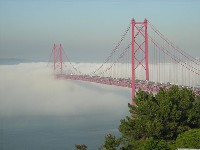Off topic: What would a German call an Austrian in the 1930s? Thread poster: sommerz (X)
|
|---|
sommerz (X)
United Kingdom
Local time: 23:52
English to Norwegian
Relax, I'm not attempting a half-assed one-liner here, merely helping out my theatre actor friend with an interesting research challenge.
There will always be friendly banter between neighbours and relatives; Danes calling Norwegians 'mountain apes', Britons calling Americans 'Yank(ee)s' etc.
What could an early 1900s German realisticially have used as a playful, not particularly offensive nickname/moniker/epithet (in German) about someone from Austria?
... See more Relax, I'm not attempting a half-assed one-liner here, merely helping out my theatre actor friend with an interesting research challenge.
There will always be friendly banter between neighbours and relatives; Danes calling Norwegians 'mountain apes', Britons calling Americans 'Yank(ee)s' etc.
What could an early 1900s German realisticially have used as a playful, not particularly offensive nickname/moniker/epithet (in German) about someone from Austria?
This thread is not intended to be offensive in any way, and I do not encourage the use of derogatory ethnophaulisms. The aim is merely to find a suitable term for use in a historical theatrical play.
Many thanks in advance for any thoughts and ideas! ▲ Collapse
| | | | Jan Rausch 
Germany
Local time: 00:52
German to English
+ ...
The term most Germans would use today is Ösi. In fact, I can't think of anything else. Apparently, there's also Schluchtenscheißer, which I've just found online but was hitherto unknown to me.
Now whether Ösi was also common in the 30s is a different matter. I have no idea, but would have thought it's not unlikely.
[Modifié le 2012-06-29 10:18 GMT]
| | | |
Not sure either whether it was indeed used in that period.
| | | | Thomas Pfann 
United Kingdom
Local time: 23:52
Member (2006)
English to German
+ ...
| No answers, but maybe food for thought | Jun 29, 2012 |
Very interesting question. I don't really know an answer, but here are some thoughts which maybe others could comment on:
"Kakanier" seems to be one old moniker for Austrians. However, it seems to have been mainly used self-deprecatingly by the Austrians themselves. I don't know if that's something a German would have said. The word "Kakanien"/"Kakanier" is derived from the common abbreviation "k.k." describing the Austrian-Bohemian Habsburg monarchy ("kaiserlich-königlich" ... See more Very interesting question. I don't really know an answer, but here are some thoughts which maybe others could comment on:
"Kakanier" seems to be one old moniker for Austrians. However, it seems to have been mainly used self-deprecatingly by the Austrians themselves. I don't know if that's something a German would have said. The word "Kakanien"/"Kakanier" is derived from the common abbreviation "k.k." describing the Austrian-Bohemian Habsburg monarchy ("kaiserlich-königlich" = "Imperial-Royal").
Maybe something like "k-und-k'ler"? But that's just a guess and I haven't found anything to support that.
Then, there is the word "Nusser" (derived from nuts coming from the Tyrol?) but I have no idea how old this word is and how widespread its use. It seems to be only used in the very south of Germany, possibly only the Bavarian-Austrian borderland.
[Edited at 2012-06-29 11:07 GMT] ▲ Collapse
| | |
|
|
|
sommerz (X)
United Kingdom
Local time: 23:52
English to Norwegian
TOPIC STARTER
Thanks a lot for your input, guys!
My friend is delighted to have some ammo for his next rehearsal; time will tell which term makes the final performance. 
Have a great weekend!
| | | | | Alpenindianer | Jun 29, 2012 |
| | | | sommerz (X)
United Kingdom
Local time: 23:52
English to Norwegian
TOPIC STARTER
Das is ganz lustig und kreativ, vielleicht ein bisschen ähnlich wie meine norwegische Beispiel.
| | | | Nicole Schnell 
United States
Local time: 15:52
English to German
+ ...
In memoriam | For Upper Austria: Gscheerte / Mostschädel / Stieglhupfer | Jun 30, 2012 |
I hope this helps a bit.
Sorry - the source is in German. I'd be happy to translate it later, right now I am on a deadline.
"SPITZNAMEN DER OBERÖSTERREICHER
Die Oberösterreicher werden heute noch als „Gscheerte", also bäuerliche Menschen bezeichnet, denn die Bauern durften als Unfreie durch Jahrhunderte kein wallendes Haar tragen. Auch der Spitzname „Mostschädeln" ist noch nicht ausgestorben, obwohl der vergorene Apfel- oder Birnensaft, der „Most"... See more I hope this helps a bit.
Sorry - the source is in German. I'd be happy to translate it later, right now I am on a deadline.
"SPITZNAMEN DER OBERÖSTERREICHER
Die Oberösterreicher werden heute noch als „Gscheerte", also bäuerliche Menschen bezeichnet, denn die Bauern durften als Unfreie durch Jahrhunderte kein wallendes Haar tragen. Auch der Spitzname „Mostschädeln" ist noch nicht ausgestorben, obwohl der vergorene Apfel- oder Birnensaft, der „Most", längst nicht mehr das verbreitete und beliebte Hauptgetränk des Landes bildet.
Gänzlich verschollen ist der Beiname „Stieglhupfer" für die Bewohner des Landes ob der Enns. Und doch war er einmal sprichwörtlich. So begrüßte Kaiser Franz I. die Gräfin Lulu Türheim 1814, als sie mit ihren Schwestern in oberösterreichischer Tracht auf einem Ball des Fürsten Metternich erschien, mit den Worten: „Ach, da sind sie ja, meine lieben Stieglhupferinnen!" Höfer in seinem Wörterbuch erklärt den Ausdruck aus dem Umstände, „daß es hier ob der Enns unzählige Stiegel über Zäune gibt, indem die Häuser nicht in großen Dörfern, sondern zerstreut mitten unter ihren Gründen stehen".
Quelle: Commenda Hans, Eigene Sammlung. Handschrift.
Höfer Matthias, Etymologisches Wörterbuch. III, S. 82. Heimatgaue, Linz, 1934.
aus: Hans Commenda, Sagen in und um Linz, in: Oberösterreichische Heimatblätter, Jahrgang 21, 1967, Heft 3/4, S. 27 - 74."
http://www.sagen.at/texte/sagen/oesterreich/oberoesterreich/linz/spitznamen.html ▲ Collapse
| | |
|
|
|
Teresa Reinhardt 
United States
Local time: 15:52
Member (2002)
German to English
+ ...
The official German name for Austria (after annexation in '38) was Ostmark; so maybe Ostmärkler?
Yep, confirmed at this monster link
http://books.google.com/books?id=2xNJdvAVRu4C&pg=PA62&lpg=PA62&dq=Ostm��rkler&source=bl&ots=fDZak9oZtL&sig=95r1-loNNZuCwCKGNxnl7EVkqOA&hl=en&sa=X&ei=3k7uT-b7D-W16gHsrIHbBA&ved=0CEkQ6AEwAg#v=onepage&q=Ostmärkler&f=false... See more The official German name for Austria (after annexation in '38) was Ostmark; so maybe Ostmärkler?
Yep, confirmed at this monster link
http://books.google.com/books?id=2xNJdvAVRu4C&pg=PA62&lpg=PA62&dq=Ostm��rkler&source=bl&ots=fDZak9oZtL&sig=95r1-loNNZuCwCKGNxnl7EVkqOA&hl=en&sa=X&ei=3k7uT-b7D-W16gHsrIHbBA&ved=0CEkQ6AEwAg#v=onepage&q=Ostmärkler&f=false
(links to a book by Bernhard Wetzstein, Die Nationalsozialistische Instrumentalisierung des Sports...)
Assuming your question was serious; still doesn't account for pre-1938...
HTH,
Teresa
Ooops, just saw you asked for early 20th c. - that would have been K.u.K. times, indeed.
Your best bet would be a lit prof who knows the more low-brow literature, press, etc. of the time (what's called cultural studies now).
[Edited at 2012-06-30 01:04 GMT] ▲ Collapse
| | | | sommerz (X)
United Kingdom
Local time: 23:52
English to Norwegian
TOPIC STARTER | Excellent input | Jul 2, 2012 |
Thanks a lot, Teresa and Nicole! It's interesting to see the plethora of possible solutions here, I honestly thought this thread might be a shot in the dark. The ProZ community impresses every time!
| | | | To report site rules violations or get help, contact a site moderator: You can also contact site staff by submitting a support request » What would a German call an Austrian in the 1930s? | Trados Studio 2022 Freelance | The leading translation software used by over 270,000 translators.
Designed with your feedback in mind, Trados Studio 2022 delivers an unrivalled, powerful desktop
and cloud solution, empowering you to work in the most efficient and cost-effective way.
More info » |
| | TM-Town | Manage your TMs and Terms ... and boost your translation business
Are you ready for something fresh in the industry? TM-Town is a unique new site for you -- the freelance translator -- to store, manage and share translation memories (TMs) and glossaries...and potentially meet new clients on the basis of your prior work.
More info » |
|
| | | | X Sign in to your ProZ.com account... | | | | | |









